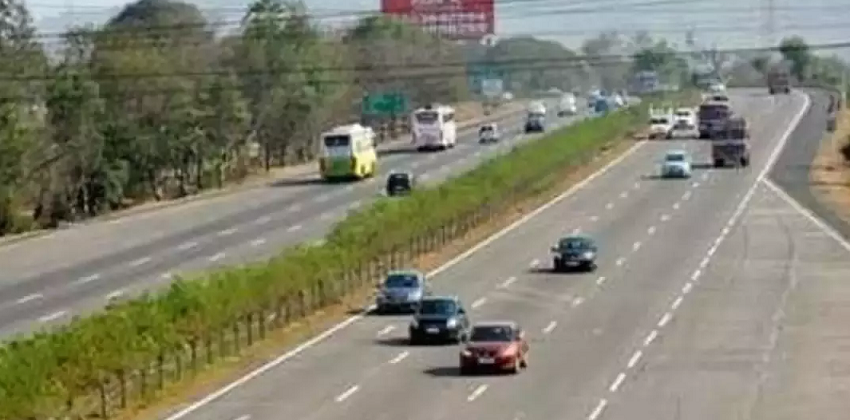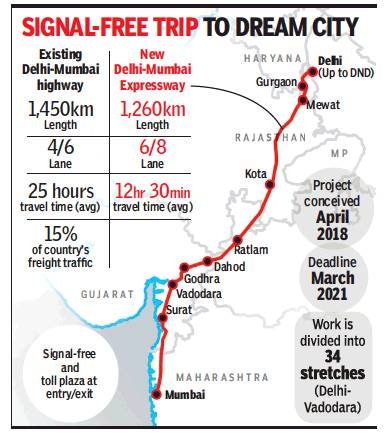
Beating its own record, NHAI is set to start construction work on Delhi-Mumbai Expressway in March, less than a year after the government announced to build the signal-free access-controlled corridor between the two metropolises.
NHAI has received multiple bids for six stretches in Haryana and Rajasthan, totalling 173 km, which will be awarded by this month-end. Work on another 22 stretches will be awarded by mid February, officials said. “The land acquisition is at the last stage in Haryana. We will be in a position to start work any time between February 15 and March second week,” said an official.
The highways authority fast-tracking the ambitious project to cut down travel time between the two cities to barely 12 and half hours from the present 25 hours gains importance considering that it took more than a decade to start work on Eastern Peripheral Expressway (EPE) in the NCR and Delhi-Meerut Expressway (DME). The projects were conceived in 2003-04 but work started in 2015-16.
This will be longest expressway in the country passing through five states. NHAI is acquiring about 12,000 hectares for the project and has engaged professionals to fast-track the process.
“Now there is a clear line of action. We have fast-tracked the land acquisition process and since the expressway mostly passes through uninhabited areas, getting land is easy. For each package we are getting at least four bidders and all of them are good performing contractors. Since the works are fully funded by government, construction can start soon,” said a highway ministry official.
The project would be completed by March 2022. Announcing the project at a TOI event in April last year, highways minister Nitin Gadkari had said the entire stretch will be operational in less than three years from start of work.
While work on Vadodara-Mumbai stretch is already under way, NHAI has divided the rest into 34 stretches so that work can start simultaneously. The authority has followed the same model for construction as for EPE and DME for faster completion. In fact, Delhi Metro was the first agency to go for engaging multiple contractors for laying tracks, which was one of the reasons behind timely completion of work.
The expressway will have closed tolling system, which means people will have to pay for the exact km they travel and there will be no toll plaza on the main carriageway. the toll booths will be at entry and exit points to calculate the distance travelled.

Source : TOI

